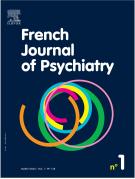Rates of treated mental disorders in migrants using data from the Parisian sectorized psychiatric hospitals. - 29/05/20
Résumé |
Background Increased incidence and prevalence of severe mental disorders (especially psychosis) are reported among migrants in Europe (Jongsma et al., 2017). However, there is evidence that pathways to care and service use are not similar between these groups (Bhui et al., 2003). Paris has about 2 million inhabitants including 20% of migrants. A previous study showed increased admissions for first episode of psychosis among migrants in one district (Tortelli et al., 2014); there is need to extend data regarding the use of all kinds of mental health care facilities. We aimed to estimate the proportion and socio-economic characteristics of migrants treated for mental disorders in mental health facilities in comparison to natives.
Methods We calculated day-point estimations of treated population rates in natives and migrants using the number of patients seen on January 31, 2017 in the public psychiatric facilities and Paris population data. We compared socio-economic situations, diagnosis and rates of compulsory admission, using odds-ratios (OR).
Results A total of 4,005 patients were included in the study. The treated population rates were 2.15/1 000 inh. among natives and 2.4./1 000 among migrants (p < 0.001). Migrants were more often treated in acute facilities than natives (OR = 1.2,95 %CI:1.0-1.4) and OR = 1.2,95 %CI: 1.1-1.3 respectively), but less often in specialized consultations (OR = 0.6,95 %CI:0.4-0.8). Compulsory admission was significantly more frequent among migrants compared to natives (OR = 1.2,95 %CI:1.0-1.5). Psychosis was also more prevalent in this population (OR = 1.2,95 %CI:1.0-1.4), but not affective disorders (OR = 1.1, 95 %CI: 0.8-1.4). Migrants had more socio-economic disadvantages compared to natives: they were more often homeless (OR = 4.9, 95 %CI:3.4-7.2) or living in unstable and inadequate housing conditions (OR = 1.4,95 %CI:1.1-1.8). A larger part of migrants had no economic resources at all (OR = 3.7, 95 %CI: 2.8-4.8) and no medical insurance (OR = 8.8, 95 %CI:4.8-16.2). Seventy-seven (7.3 %) of migrants had the « Aide Médicale Etat » – the state medical insurance, for people in irregular situation in the country.
Conclusion We found increased rates of treated mental disorders among migrants than natives, suggesting higher rates of mental disorders compared to the general population. We observed, to some extent, a fair access to public mental health facilities, despite differences in pathways to care and use of specialist services.
Le texte complet de cet article est disponible en PDF.Keywords : Migration, Psychosis, Mental health care, Homeless
Vol 1 - N° S
P. S167-S168 - novembre 2018 Retour au numéroBienvenue sur EM-consulte, la référence des professionnels de santé.
L’accès au texte intégral de cet article nécessite un abonnement.
Déjà abonné à cette revue ?


